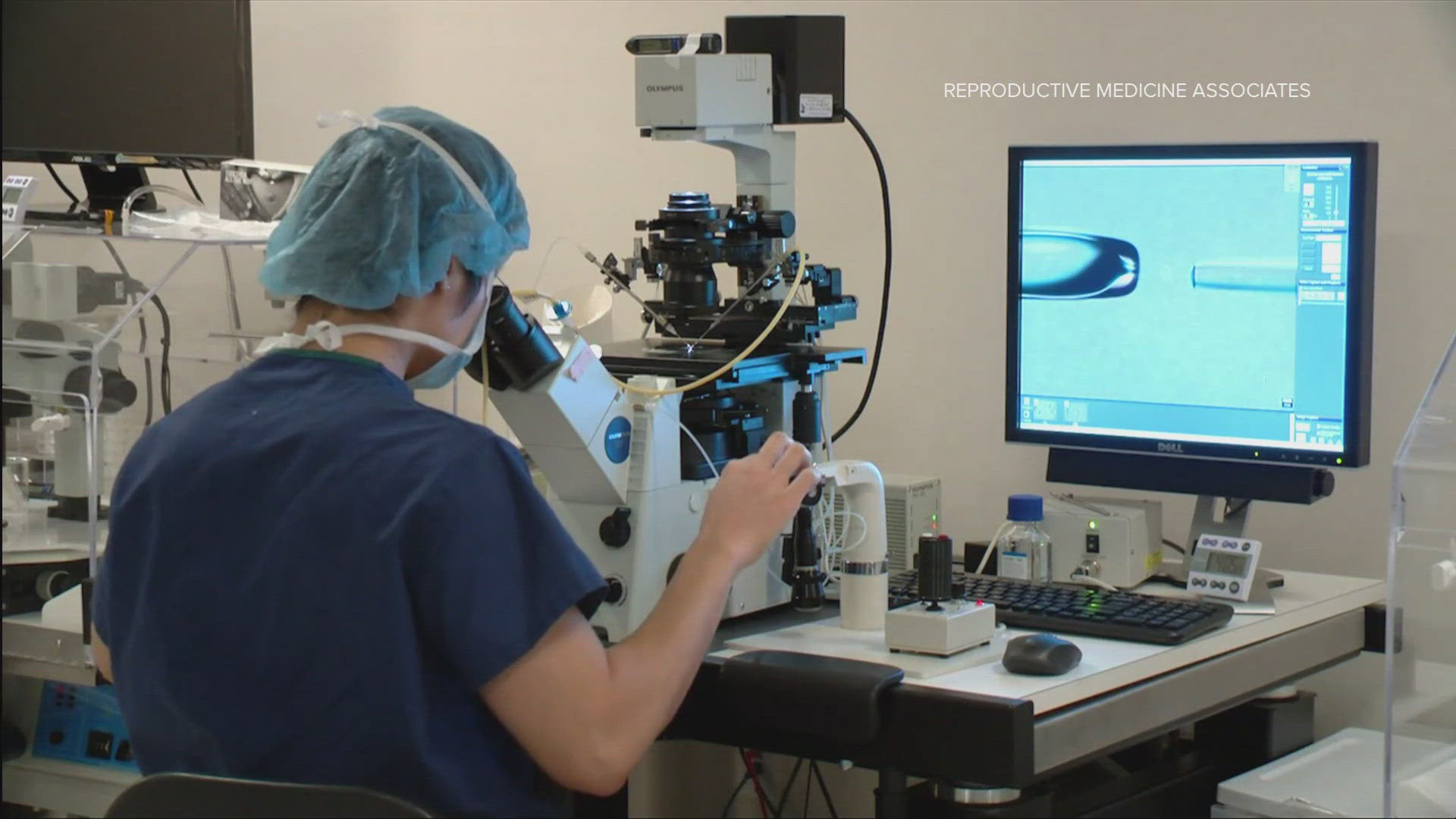BELLEVUE, Wash. — It's estimated that more than 200,000 Washington state residents are impacted by an infertility disease, but according to Reproductive Medicine Associates (RMA) in Seattle, that number is likely higher.
Because of that growing number - RMA opened a second clinic location in Bellevue in April.
"The demand has grown significantly and the area clinics cannot meet that," said Dr. Kat Lin, RMA medical director.
Lin said the Bellevue location improves access to potential Eastside patients and also patients in Eastern Washington who can travel more easily to this area.
Patients are from all racial and ethnic backgrounds, different diagnoses, and all sexual orientations.
The age range varies, but Dr. Lin said more younger patients are starting to call their clinics to plan ahead.
"We've got younger patients coming in...in their early 30s and late 20s, interested in understanding their fertility status, interested in thinking about fertility preservation," Lin said.
Over the past 10 years - Dr. Lin said RMA has been able to create personalized care for each patient who needs infertility disease treatment or is looking for fertility preservation.
"I think it's very important to meet [patients] where they are, and you have to be open enough and slow down enough to be able to learn where they are," Dr. Lin said. "To listen to them and to give them the space to be able to tell you how they're feeling and to share that with them in a very genuine way. I think that is really the doctor and patient relationship in its essence. I think that's very important. I have always said to my patients - treatment options are always out there and it's my role to help them begin to think about different treatment options so that they feel like they're in control."
Bellevue woman shares her fertility journey
One of those patients includes Lina Kacyem, 36, of Bellevue, who decided to share her journey with others.
"I have a desire to have kids," Kacyem said. "It's still a bit of a question mark on how that's going to happen."
Kacyem welcomed KING 5 to speak with her before and after her fifth egg retrieval.
She is far from alone.
For varying reasons— more than a million frozen eggs and embryos are put in storage every year in the United States, according to a biotech fertility clinic, a number that is expected to grow.
Kacyem has also saved some frozen embryos from a past relationship. So far - it’s been a six-year journey.
“Although this round didn’t work out for me," Kacyem said. "I have no regrets for trying again. Often that’s the story, you try and try and it’s doesn’t work and that’s OK."
Kacyem said learning more about her fertility status was just as important as being an advocate for her own health.
"You don't want to compare yourself to others," Kacyem said. "I unfortunately ended up on the lower side of things because I have endometriosis. I have ovarian cysts and fibroids. I usually encourage young women to go and sort of get checked in terms of their fertility."
There are several steps when it comes to egg retrieval. That includes preparing for the cycle, stimulating the ovaries, the actual egg retrieval procedure, lab analysis and fertilization, and finally, recovery.
Kacyem said the process of hormone injections alone can be daunting and stressful for a woman or family - in addition to the cost.
"I was thankfully in a situation where insurance was covering a portion of it," Kacyem said. "The first couple of rounds, it was still rough because it was $15,000 out of pocket, but you know, I was lucky enough that I was in a good job. I had made savings."
Going through the physical, emotional and financial process is challenging, but Kacyem said her support system helped her through.
"I have amazing parents. My siblings are beyond supportive," Kacyem said. "I have friends - male, female, non-binary who have just been amazing champions in this journey."
No matter the outcome of anyone's journey - Kacyem said it's crucial to do what's best for yourself and your future.
"Every woman who desires kids or is unsure about her desire to have kids must at least inform herself about egg freezing," Kacyem said. "It’s liberating to know you are giving your future self some options and if you get diagnosed with something like endometriosis or adenomyosis or something else, you’re giving your present self the gift of answers and treatment. All in all, it’s a win to get inform and try if possible.”
Kacyem said how you become a parent can come in many forms.
“If you have a desire to be a mother, you will be a mother," Kacyem said. "It doesn't matter how it happens. From your belly, from someone else's belly... It's really not the point, because when your child is your child, you will just love that child.”
Continuing coverage
Tune in to KING 5 Mornings on Wednesday for part two of this story. KING 5 reporter Farah Jadran and photojournalist John Mahaffie highlight the barriers hopeful families face, which include treatment access and insurance coverage.
A West Seattle couple shares their infertility journey and how they came to a crossroads in how they would become parents.

